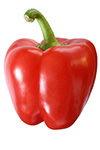Sign In Chef

By using our free meal planner (and the rest of spoonacular.com) you have to agree that you and only you are responsible for anything that happens to you because of something you have read on this site or have bought/cooked/eaten because of this site. After all, the only person who controls what you put in your mouth is you, right?
Spoonacular is a recipe search engine that sources recipes from across the web. We do our best to find recipes suitable for many diets — whether vegetarian, vegan, gluten free, dairy free, etc. — but we cannot guarantee that a recipe's ingredients are safe for your diet. Always read ingredient lists from the original source (follow the link from the "Instructions" field) in case an ingredient has been incorrectly extracted from the original source or has been labeled incorrectly in any way. Moreover, it is important that you always read the labels on every product you buy to see if the product could cause an allergic reaction or if it conflicts with your personal or religious beliefs. If you are still not sure after reading the label, contact the manufacturer.
We also attempt to estimate the cost and calculate the nutritional information for the recipes found on our site. Again, we cannot guarantee the accuracy of this information. Additionally, our nutrition visualizer that suggests that you limit sodium, sugar, etc., and get enough protein, vitamins, and minerals is not intended as medical advice. Similarly, our health tips are based on articles we have read from various sources across the web, and are not based on any medical training. The team behind spoonacular does not possess any medical qualifications and the information may be found to be incorrect or out of date based on future research. If you need help planning your diet or determining which foods (and recipes) are safe for you, contact a registered dietitian, allergist, or another medical professional.
Spoonacular is not responsible for any adverse effects or damages that occur because of your use of the website or any information it provides (e.g. after cooking/consuming a recipe on spoonacular.com or on any of the sites we link to, after reading information from articles or shared via social media, etc.)
×$2.50 per serving

1 likes

Ready in 45 minutes

Spoonacular Score: 66%
Thai Basil Chicken With Green Curry might be just the main course you are searching for. This gluten free and dairy free recipe serves 4 and costs $2.5 per serving. One portion of this dish contains around 28g of protein, 34g of fat, and a total of 491 calories. Only a few people made this recipe, and 1 would say it hit the spot. A mixture of chicken stock, fish sauce, curry paste, and a handful of other ingredients are all it takes to make this recipe so scrumptious. From preparation to the plate, this recipe takes roughly 45 minutes. It is an affordable recipe for fans of Indian food. It is brought to you by Foodista. Taking all factors into account, this recipe earns a spoonacular score of 60%, which is good. Users who liked this recipe also liked Thai Basil Chicken With Green Curry, Thai Basil Chicken With Green Curry, and Homemade Thai Green Curry Paste (And An Easy Thai Green Curry).
Asian works really well with Riesling, Gewurztraminer, and Chenin Blanc. The best wine for Asian food depends on the cuisine and dish - of course - but these acidic whites pair with a number of traditional meals, spicy or not. The Westport Winery "Ancient Mariner" Riesling & Pear wine blend (Benefits Coastal Animal Rescue and Adoption) with a 5 out of 5 star rating seems like a good match. It costs about 27 dollars per bottle.
 Try this delicate blend of pear and Riesling that smacks of honey and sunshine. Whatever voyage of exploration inspires your daily life, remember the Rime of the Ancient Mariner. Offer salvation. Benefits Coastal Animal Rescue and Adoption (CARA).
Try this delicate blend of pear and Riesling that smacks of honey and sunshine. Whatever voyage of exploration inspires your daily life, remember the Rime of the Ancient Mariner. Offer salvation. Benefits Coastal Animal Rescue and Adoption (CARA).
» Get this wine on Amazon.com




































Read the detailed instructions on Foodista.com – The Cooking Encyclopedia Everyone Can Edit